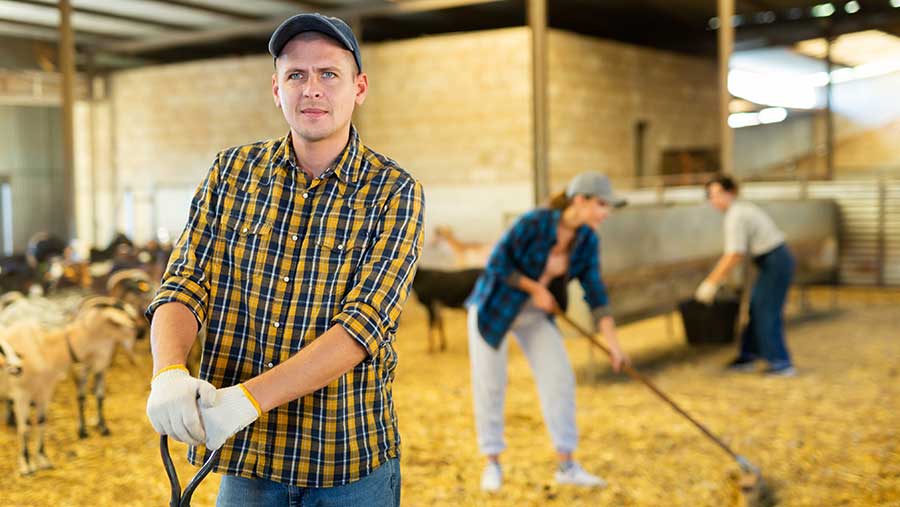Editor’s view: Farming must be profitable to attract new entrants
 © JackF/Adobe Stock
© JackF/Adobe Stock Where there’s a will, there’s a way – though it sure does take a lot of determination to break into farming if you’re not from a farming background.
Harnessing that entrepreneurial spirit seems high up the list for Defra farming minster Mark Spencer, who recently hosted a round-table meeting in London to encourage new entrants into the sector.
Defra is also running its New Entrant Support Scheme, to “provide tactical support to young businesses through the early stages of development, nurturing entrepreneurs, and encouraging innovation and growth”.
See also: Opportunities are there for new entrants, says minister
And there are plenty of positives coming out of the ongoing pilots to do with mentoring, knowledge sharing and network building.
The fact that 80% of the 200 participants are from non-farming backgrounds is a particular plus.
But the approach has its limitations, especially when compared with some of the new entrants schemes on offer elsewhere in Europe, typically involving start-up grants, interest-free loans and income support.
Asked what further assistance the UK government might give, Mr Spencer had plenty of warm words about encouraging banks to be supportive and making new entrants aware of the grants available to practising farmers.
But direct income support to help them onto the farming ladder? Forget it.
Given the free-market instincts of the current government, that was hardly surprising – despite the significant cash surplus Defra is sitting on after all the BPS cuts in England.
Rock Review
But there is clearly a lot more the government could and should be doing to “grease the wheels” for aspiring new entrants – especially in relation to access to land and capital.
The Rock Review makes a number of valid suggestions, including around county council smallholdings – the traditional way in for those from outside of agriculture.
The government seems content to leave it to county councils to manage their own estates – which in many past cases has resulted in the disposal of land to generate short-term cash.
A far more hands-on approach from government would ensure many more opportunities for those seeking that crucial first step.
On access to capital, the government would also do well to provide backing for a loan guarantee scheme, and so give the banks the confidence they need to provide finance for new entrants.
It would not cost a great deal, but would make a huge difference.
Installing the next generation is not all about government support, of course, and farmers have a role to play in providing opportunities for would-be new entrants.
The recent initiative from the Institute for Agriculture and Horticulture, encouraging existing farmers and growers to provide quality work experience opportunities, is a worthy one – especially with the new T-qualifications coming in this autumn as an alternative to A-levels, catering for young people with more vocational aspirations.
It is also understood that the Yorkshire Agricultural Society is looking at ways to support those farmers willing to give opportunities to the next generation eager to join our industry.
But ultimately, if farming is to attract new entrants, it needs to be profitable. As one attendee at last week’s Defra event said after the meeting: “Why would you go into an industry where you are going to lose money all your life?”
That means addressing things such as supply chain fairness, equivalence of standards for imports, and rewarding farmers sufficiently for all the other services they provide.
Relying on entrepreneurial spirit alone is not going to cut it.

